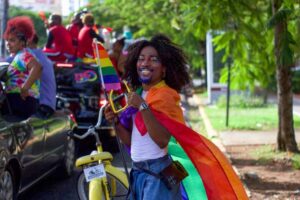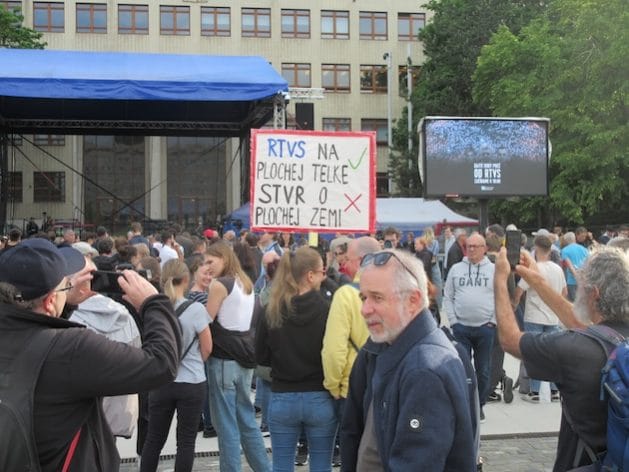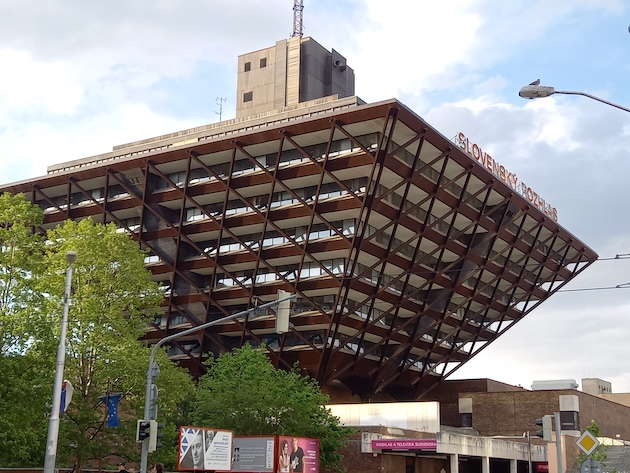
Armed Conflicts, Civil Society, Democracy, Global, Global Governance, Headlines, Human Rights, IPS UN: Inside the Glasshouse, TerraViva United Nations

© UNICEF/Tess Ingram
Parts of the city of Khan Younis are now almost unrecognizable after more than eight months of intense bombardment, UN officers report. Credit: UNICEF/Tess Ingram
– “When someone shows you who they are,” Maya Angelou said, “believe them the first time.” That should apply to foreign-policy elites who show you who they are, time after time.
Officials running the Pentagon and State Department have been in overdrive for more than 250 days in support of Israel’s ongoing slaughter of Palestinian civilians in Gaza. Supposedly dedicated to defense and diplomacy, those officials have worked to implement and disguise Washington’s war policies, which have taken more lives than any other government in this century.
Among the weapons of war, cluster munitions are especially horrific. That’s why 67 Democrats and an equal number of Republicans in the House of Representatives voted last week to prevent the U.S. government from continuing to send those weapons to armies overseas.
But more than twice as many House members voted the other way. They defeated a Pentagon funding amendment that would have prohibited the transfer of cluster munitions to other countries. The lawmakers ensured that the U.S. can keep supplying those weapons to the military forces of Ukraine and Israel.
As of now, 124 nations have signed onto a treaty banning cluster munitions, which often wreck the bodies of civilians. The “bomblets” from cluster munitions “are particularly attractive to children because they resemble a bell with a loop of ribbon at the end,” the Just Security organization explains.
But no member of Congress need worry that one of their own children might pick up such a bomblet someday, perhaps mistaking it for a toy, only to be instantly killed or maimed with shrapnel.
The Biden administration correctly responded to indications (later proven accurate) that Russia was using cluster munitions in Ukraine. On Feb. 28, 2022, White House spokeswoman Jen Psaki told journalists that if the reports of Russian use of those weapons turned out to be true, “it would potentially be a war crime.”
Back then, the front page of the New York Times described “internationally banned cluster munitions” as “a variety of weapons — rockets, bombs, missiles and artillery projectiles — that disperse lethal bomblets in midair over a wide area, hitting military targets and civilians alike.”
Days later, the Times reported that NATO officials “accused Russia of using cluster bombs in its invasion,” and the newspaper added that “anti-personnel cluster bombs . . . kill so indiscriminately they are banned under international law.”
But when the Ukrainian military forces ran low on ammunition last year, the U.S. administration decided to start shipping cluster munitions to them.
“All countries should condemn the use of these weapons under any circumstances,” Human Rights Watch has declared.
BBC correspondent John Simpson summed up a quarter-century ago: “Used against human beings, cluster bombs are some of the most savage weapons of modern warfare.”
As the Congressional Research Service (CRS) reported this spring, cluster munitions “disperse large numbers of submunitions imprecisely over an extended area.” They “frequently fail to detonate and are difficult to detect,” and “can remain explosive hazards for decades.”
The CRS report added: “Civilian casualties are primarily caused by munitions being fired into areas where soldiers and civilians are intermixed, inaccurate cluster munitions landing in populated areas, or civilians traversing areas where cluster munitions have been employed but failed to explode.”
The horrible immediate effects are just the beginning. “It’s been over five decades since the U.S. dropped cluster bombs on Laos, the most bombed country in the world per capita,” Human Rights Watch points out.
“The contamination from cluster munitions remnants and other unexploded ordnance is so vast that fewer than 10 percent of affected areas have been cleared. An estimated 80 million submunitions still pose a danger, especially to curious children.”
The members of Congress who just greenlighted more cluster munitions are dodging grisly realities. The basic approach is to proceed as though such human realities don’t matter if an ally is using those weapons (or if the United States uses them, as happened in Southeast Asia, Yugoslavia, Afghanistan, Iraq and Yemen).
Overall, with carnage persisting in Gaza, it’s easy enough to say that Israel’s prime minister Benjamin Netanyahu has shown us who he is. But so has Presidente Biden, and so have the most powerful Republicans and Democrats in Congress.
While the U.S. has been supplying a large majority of the weapons and ammunition imported by Israel, a similar approach from official Washington (with ineffectual grumbling) has enabled Israel to lethally constrict food going into Gaza.
During his State of the Union address in early March, Biden announced plans for the U.S. to build a port on the Gaza coast to bring in food and other vital aid. But his speech didn’t mention the Pentagon’s expectation that such a seaport could take 60 days to become operational.
At the time, a Common Dreams headline summed up the hollowness of the gambit: “Biden Aid Port Plan Rebuked as ‘Pathetic’ PR Effort as Israel Starves Gazans.” Even at full tilt, the envisioned port would not come anywhere near compensating for Israel’s methodical blockage of aid trucks — by far the best way to get food to 2.2 million people facing starvation.
“We are talking about a population that is starving now,” said Ziad Issa, the head of humanitarian policy for ActionAid. “We have already seen children dying of hunger.”
An official at Save the Children offered a reality check: “Children in Gaza cannot wait to eat. They are already dying from malnutrition, and saving their lives is a matter of hours or days — not weeks.”
The Nation described “the tragic absurdity of Biden’s Gaza policies: the U.S. government is making elaborate plans to ameliorate a humanitarian catastrophe that would not exist without its own bombs.”
And this week — more than three months after the ballyhooed drumroll about plans for a port on the Gaza coast — news broke that the whole thing is a colossal failure even on its own terms.
“The $230 million temporary pier that the U.S. military built on short notice to rush humanitarian aid to Gaza has largely failed in its mission, aid organizations say, and will probably end operations weeks earlier than originally expected,” the New York Times reported on June 18. “In the month since it was attached to the shoreline, the pier has been in service only about 10 days. The rest of the time, it was being repaired after rough seas broke it apart, detached to avoid further damage or paused because of security concerns.”
As Israel’s crucial military patron, the U.S. government could insist on an end to the continual massacre of civilians in Gaza and demand a complete halt to interference with aid deliveries. Instead, Israel continues to inflict “unconscionable death and suffering” while mass starvation is closing in.
Maya Angelou’s advice certainly applies. When the president and a big congressional majority show that they are willing accomplices to mass murder, believe them.
It’s fitting that Angelou, a renowned poet and writer, gave her voice to words from Rachel Corrie, who was crushed to death one day in 2003 while standing in front of an Israeli army bulldozer as it moved to demolish a Palestinian family’s home in Gaza.
A few years after Corrie died, Angelou recorded a video while reading from an email that the young activist sent: “We are all born and someday we’ll all die. Most likely to some degree alone. What if our aloneness isn’t a tragedy? What if our aloneness is what allows us to speak the truth without being afraid? What if our aloneness is what allows us to adventure — to experience the world as a dynamic presence — as a changeable, interactive thing?”
Norman Solomon is the national director of RootsAction.org and executive director of the Institute for Public Accuracy. He is the author of many books including War Made Easy. His latest book, ‘War Made Invisible: How America Hides the Human Toll of Its Military Machine‘, was published in 2023 by The New Press.
IPS UN Bureau















